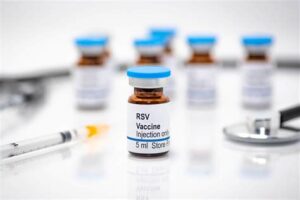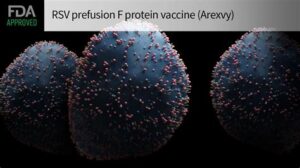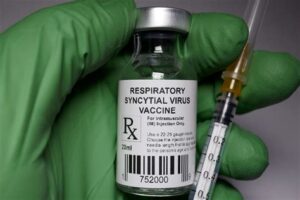Discover the science behind mRNA vaccines: how they work, their benefits, challenges, and future potential in medical advancements.In recent years, mRNA vaccines have taken center stage in the fight against infectious diseases, drawing significant attention for their innovative technology. Among the numerous inquiries about these groundbreaking vaccines, one question stands out: Is there an mRNA-based vaccine for RSV (Respiratory Syncytial Virus)? Understanding the fundamentals of mRNA vaccine technology, including how it works, its benefits, and the challenges it faces, is crucial as researchers strive to develop effective solutions for RSV, which poses a serious threat, especially to infants and older adults. As we delve into the workings of mRNA vaccines and their potential future, we’ll uncover the promise they hold not just for RSV but for a wide array of infectious diseases. Join us as we explore this fascinating intersection of science and public health.
What is an mRNA-based vaccine?
An mRNA vaccine is a new type of vaccine designed to provide protection against infections by using messenger RNA (mRNA). Unlike traditional vaccines that often use weakened or inactivated forms of a virus or bacteria, mRNA vaccines use genetically engineered strands of mRNA to instruct cells in the body to produce a protein that is part of the target pathogen. This process triggers the immune system to recognize and respond to the protein as a foreign invader, thus building an immune response.
The significant advantage of mRNA vaccines lies in their ability to be rapidly developed, which is particularly crucial during a pandemic. The platform allows for quick modifications to the vaccine composition should the virus mutate. Since these vaccines contain no live virus, there is no risk of causing the disease they are designed to protect against.
One noteworthy example of an mRNA-based vaccine is the Pfizer-BioNTech COVID-19 vaccine, which has proven highly effective in preventing severe cases of COVID-19. As research continues, scientists are exploring other diseases that can benefit from this innovative technology, includ
How does an mRNA vaccine work?
The mRNA vaccine represents a groundbreaking approach to immunization, fundamentally altering our understanding of how vaccines can be designed and deployed. Unlike traditional vaccines that often use weakened or inactivated forms of a virus, mRNA vaccines contain a small piece of the messenger RNA that instructs cells to produce a harmless piece of the virus, known as a spike protein.
Once the mRNA is introduced into the body through vaccination, the immune system’s cells begin to read the instructions encoded in the mRNA. As they read these instructions, the cells start to manufacture the spike protein. This process essentially turns the body into a biological factory, producing the very thing that the immune system needs to recognize and combat should it encounter the actual virus in the future.
After the spike protein is made, the immune system detects it as foreign and mounts an immune response. This involves the production of antibodies and activation of T cells, which are crucial for a robust immune response. In this way, the body learns to recognize and fight the actual virus if exposed in the future. This innovative method of using mRNA effectively trains the immune system without ever having to introduce the live virus into the
Benefits of an mRNA vaccine
mRNA vaccines have emerged as a groundbreaking technology in the realm of preventive medicine, especially in the fight against viral infections. One of the most significant benefits of an mRNA vaccine is their ability to produce a strong and effective immune response. Unlike traditional vaccines that often use weakened or inactivated forms of a virus, mRNA vaccines deliver a small piece of genetic material that instructs cells to create a harmless protein resembling part of the virus. This innovative approach allows the body to recognize and combat the actual virus more effectively.
Another key advantage of mRNA vaccines is their rapid development timeline. Conventional vaccine development can take many years or even decades. However, the use of mRNA technology allows researchers to design and synthesize vaccines quickly, responding to emerging infectious diseases much faster. This speed was crucial during the COVID-19 pandemic, where the mRNA vaccines were developed and authorized for emergency use within a fraction of the typical timeframe.
Moreover, mRNA vaccines have shown to exhibit a favorable safety profile. Clinical trials and ongoing monitoring have demonstrated that the side effects are generally mild and short-lived. This is an important aspect when promoting public health initiatives and ensuring community acceptance. The robust immune response combined with a strong safety profile makes mRNA vaccines a promising s
Challenges and limitations of mRNA vaccines
While mRNA vaccines have shown tremendous promise in the fight against various infectious diseases, they are not without their challenges and limitations. Understanding these barriers is crucial to further advancing vaccine technology and addressing public health needs.
One significant challenge is the stability of mRNA. mRNA is inherently fragile and requires stringent cold storage conditions to maintain its efficacy. For instance, before administration, some mRNA vaccines must be stored at ultra-low temperatures of around -70°C, which can complicate distribution logistics, especially in resource-limited settings.
Another limitation is the immune response and tolerance. Although mRNA vaccines have been designed to elicit robust immune responses, there is variability among populations. Factors like age, existing health conditions, and genetics can influence how well an individual responds to the vaccine. Furthermore, there are ongoing discussions regarding potential long-term effects, especially with new variants of viruses that may emerge.
Lastly, the production costs of mRNA vaccines can be relatively high compared to traditional vaccines. While advancements in technology are paving the way for more cost-effective production methods, the initial investment and infrastructure development required can be a barrier for widespread vaccine implementation.
Future potential of mRNA-based vaccines
The rapid development of mRNA-based vaccines during the COVID-19 pandemic has opened up a new frontier in vaccine technology. These vaccines, which utilize messenger RNA to instruct cells on how to produce proteins that trigger an immune response, are not only proving effective against viral infections but also show promise for several other diseases.
One of the most exciting potential applications of mRNA technology is in the field of cancer therapy. Researchers are exploring the possibility of developing personalized mRNA vaccines that are tailored to an individual’s specific tumor mutations. This approach could significantly enhance the immune response against cancer cells, potentially leading to more effective treatment options.
Additonally, mRNA vaccines can be rapidly designed and manufactured, which is a significant advantage during emerging infectious diseases. This flexibility allows for quick adaptation to evolving pathogens, making mRNA technology a vital tool in the global response to pandemics. As we continue to understand the capabilities of these vaccines, the future for mRNA-based therapeutic solutions looks extremely promising.
Frequently Asked Questions
What is the RSV vaccine and what does it protect against?
The RSV vaccine is designed to protect against respiratory syncytial virus (RSV), which causes respiratory infections, particularly in young children and older adults.
Is the RSV vaccine based on mRNA technology?
Yes, there are RSV vaccines currently under development that utilize mRNA technology, similar to the COVID-19 vaccines.
How does mRNA in the RSV vaccine work?
The mRNA in the vaccine provides instructions for cells to produce a harmless piece of the RSV virus, prompting an immune response without causing the disease.
What are the potential benefits of an mRNA-based RSV vaccine?
The main benefits include a faster production process, the ability to generate a strong immune response, and flexibility in modifying the vaccine if needed.
When can we expect the RSV mRNA vaccine to be widely available?
While specific timelines can vary, ongoing trials and regulatory processes are currently underway, with some estimates suggesting availability within the next few years.
Are there any known side effects of the RSV mRNA vaccine?
Like other vaccines, the RSV mRNA vaccine may have side effects, which could include mild reactions such as soreness at the injection site, fever, or fatigue.
Who will be prioritized for receiving the RSV vaccine?
High-risk groups, such as infants, young children, and older adults with underlying health conditions, are likely to be prioritized for the RSV vaccination.





